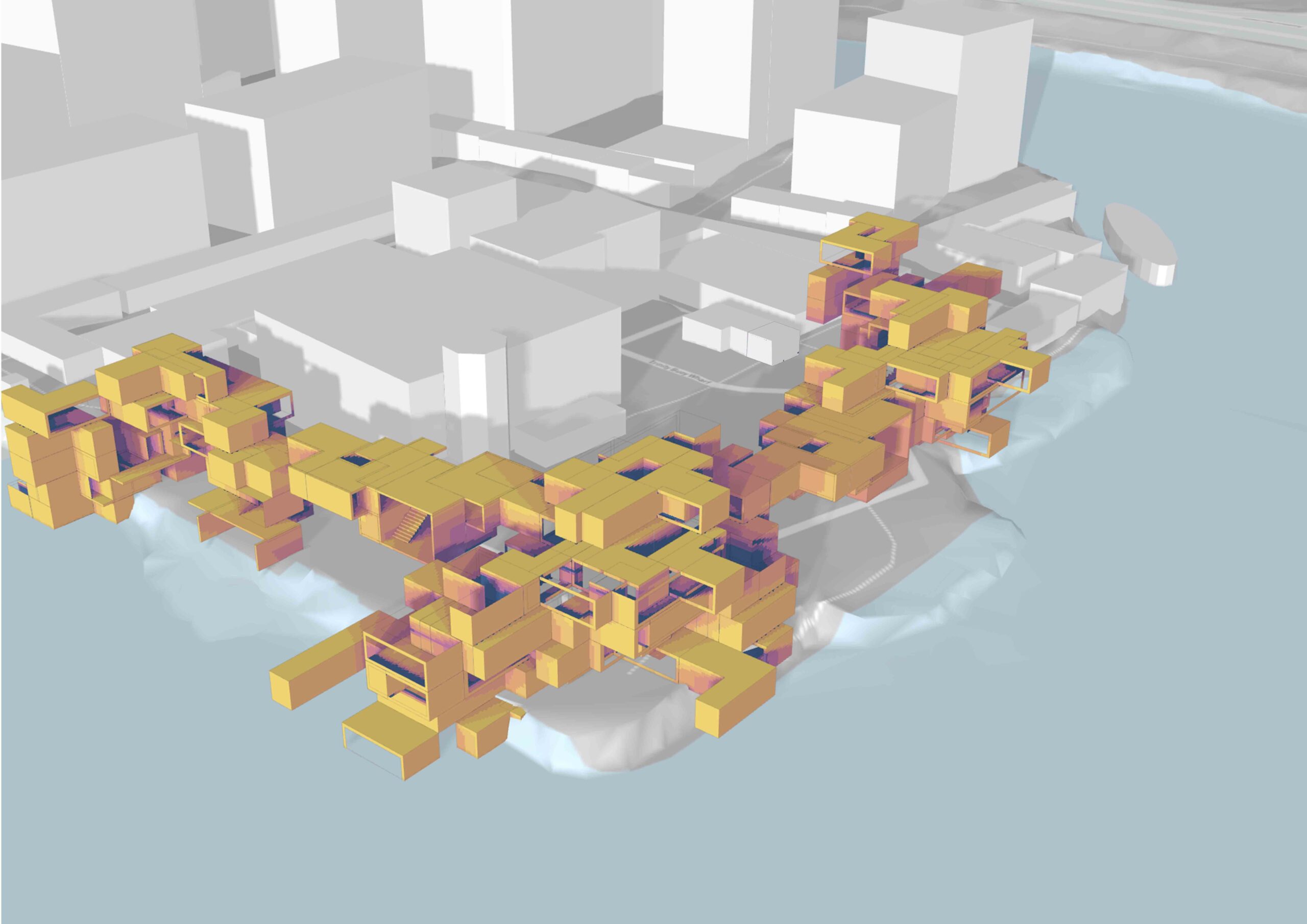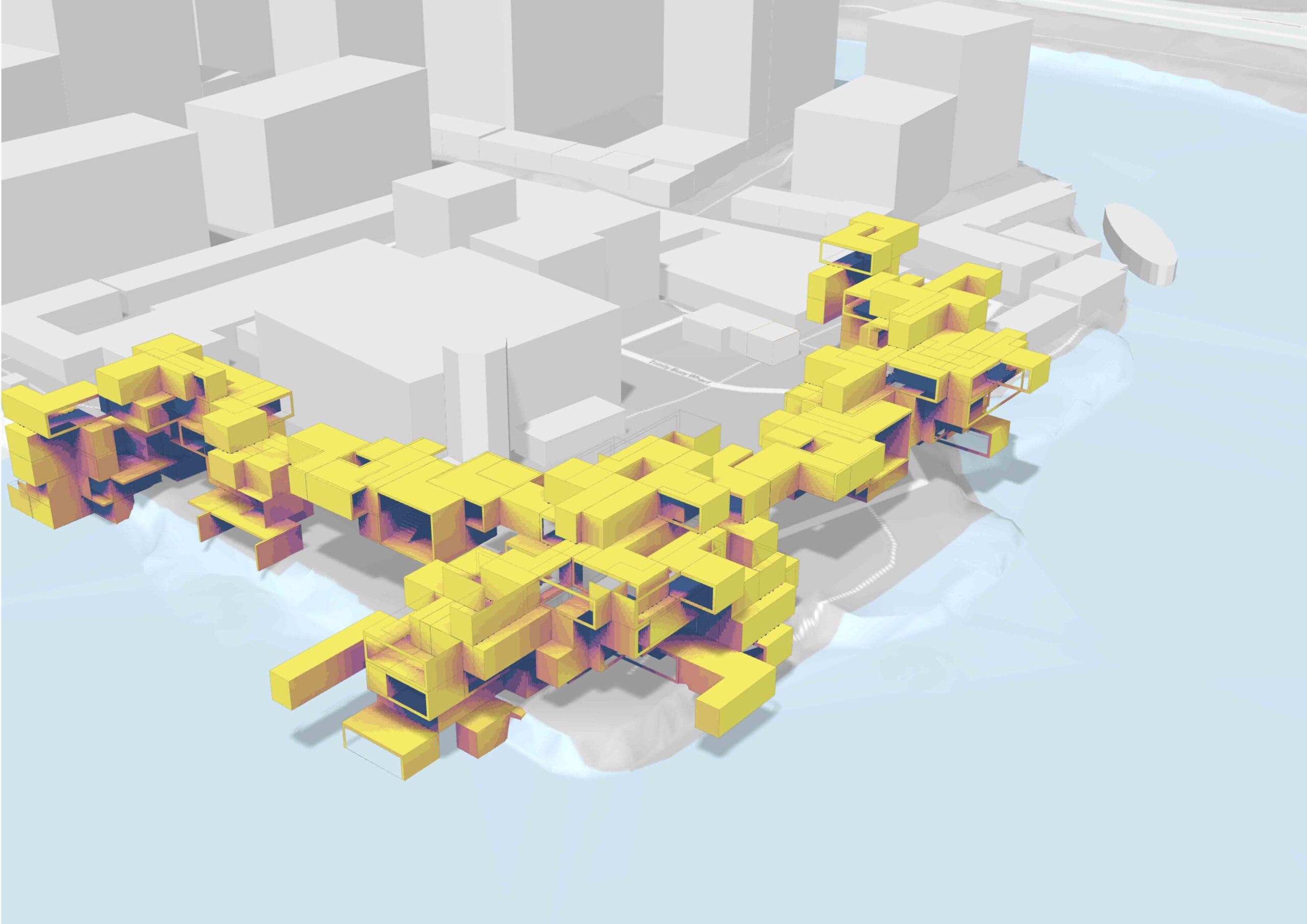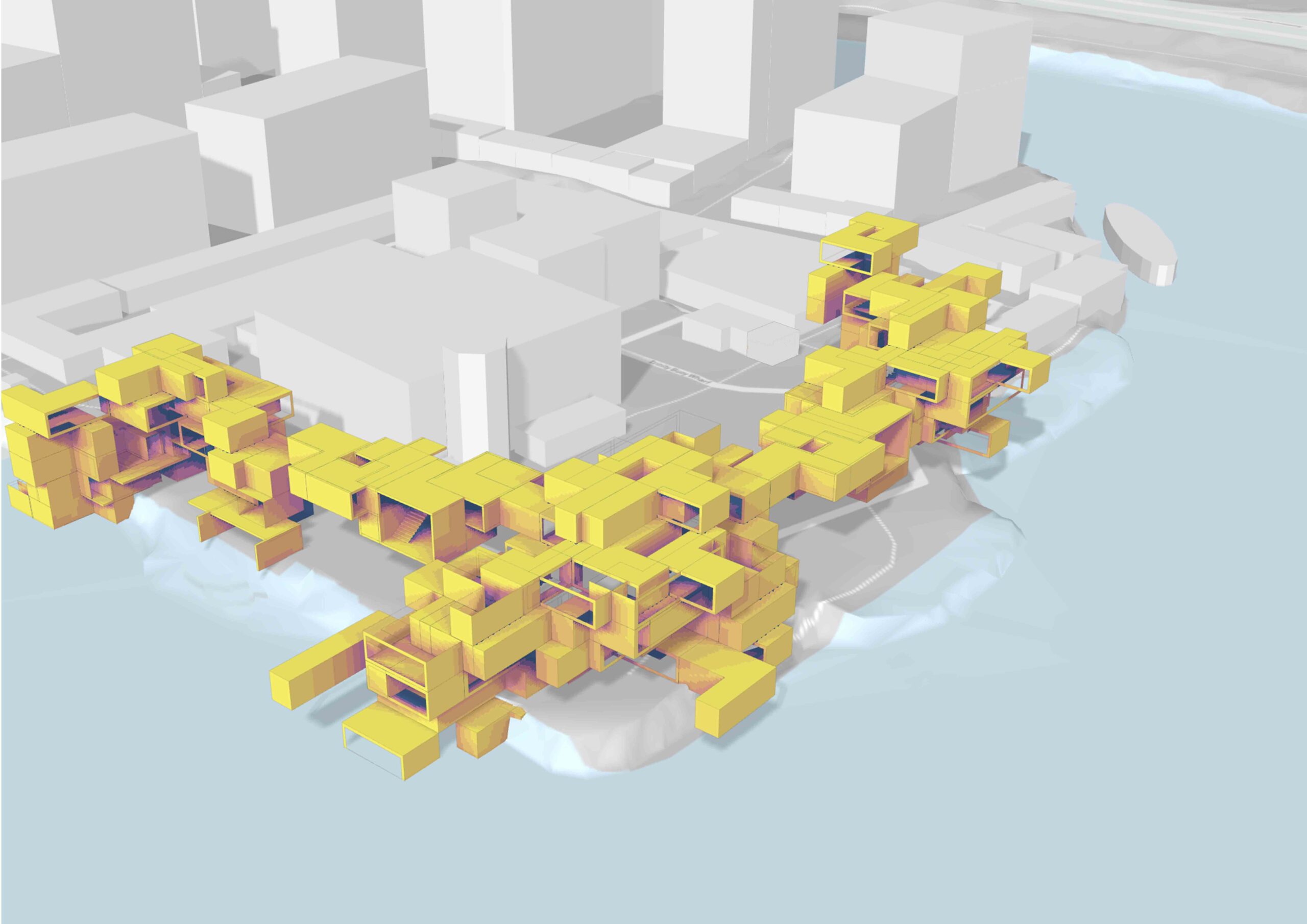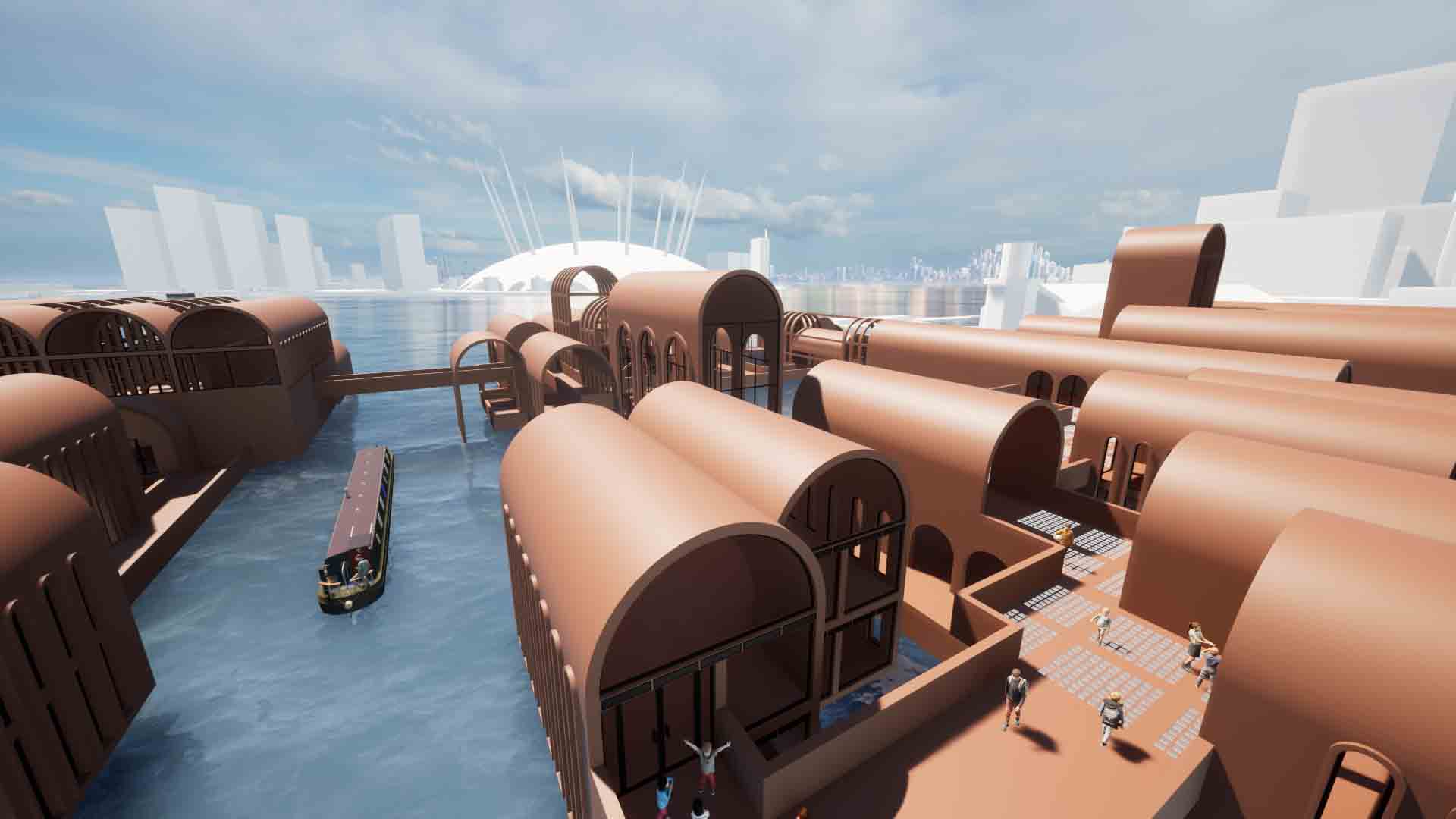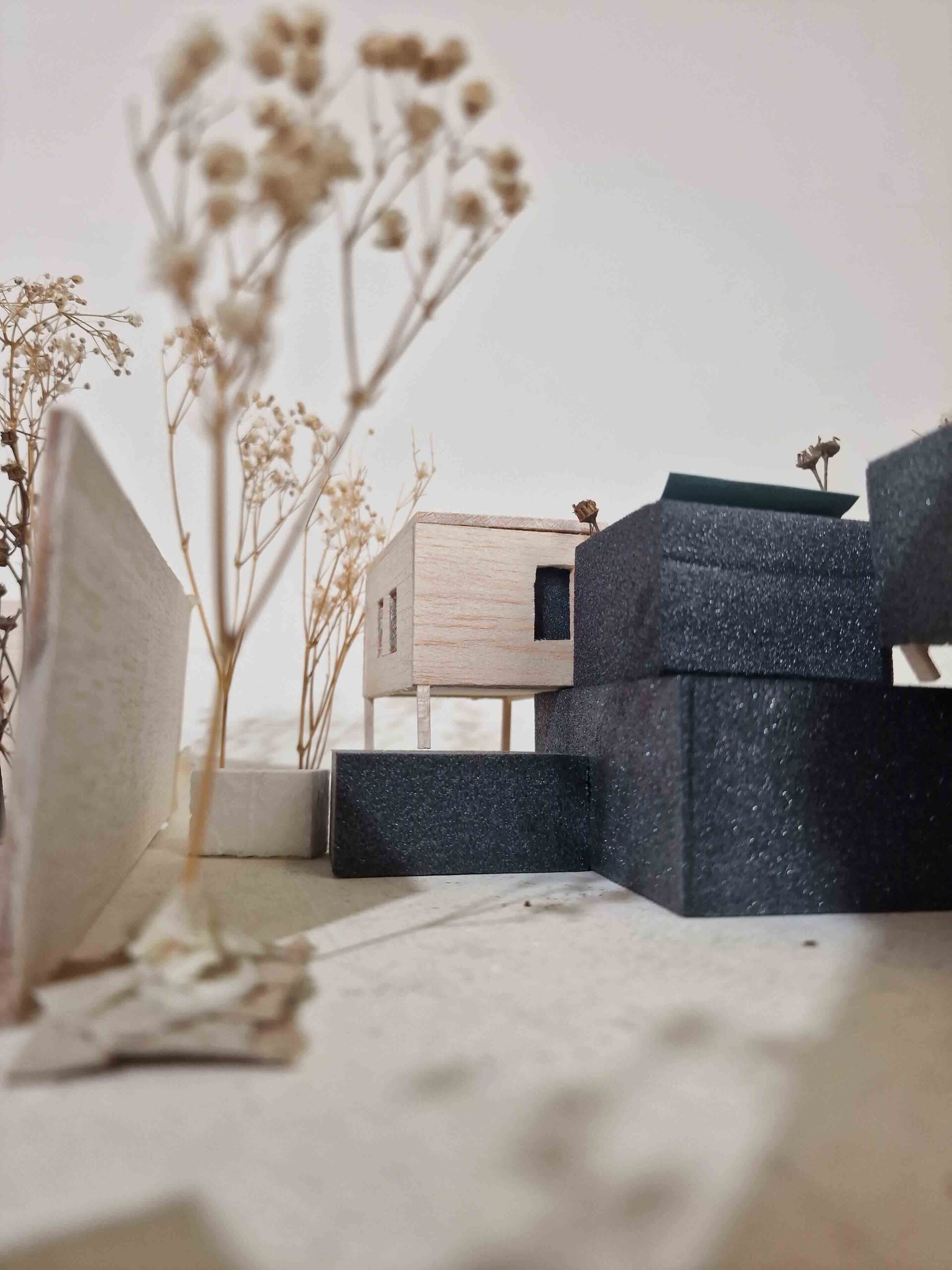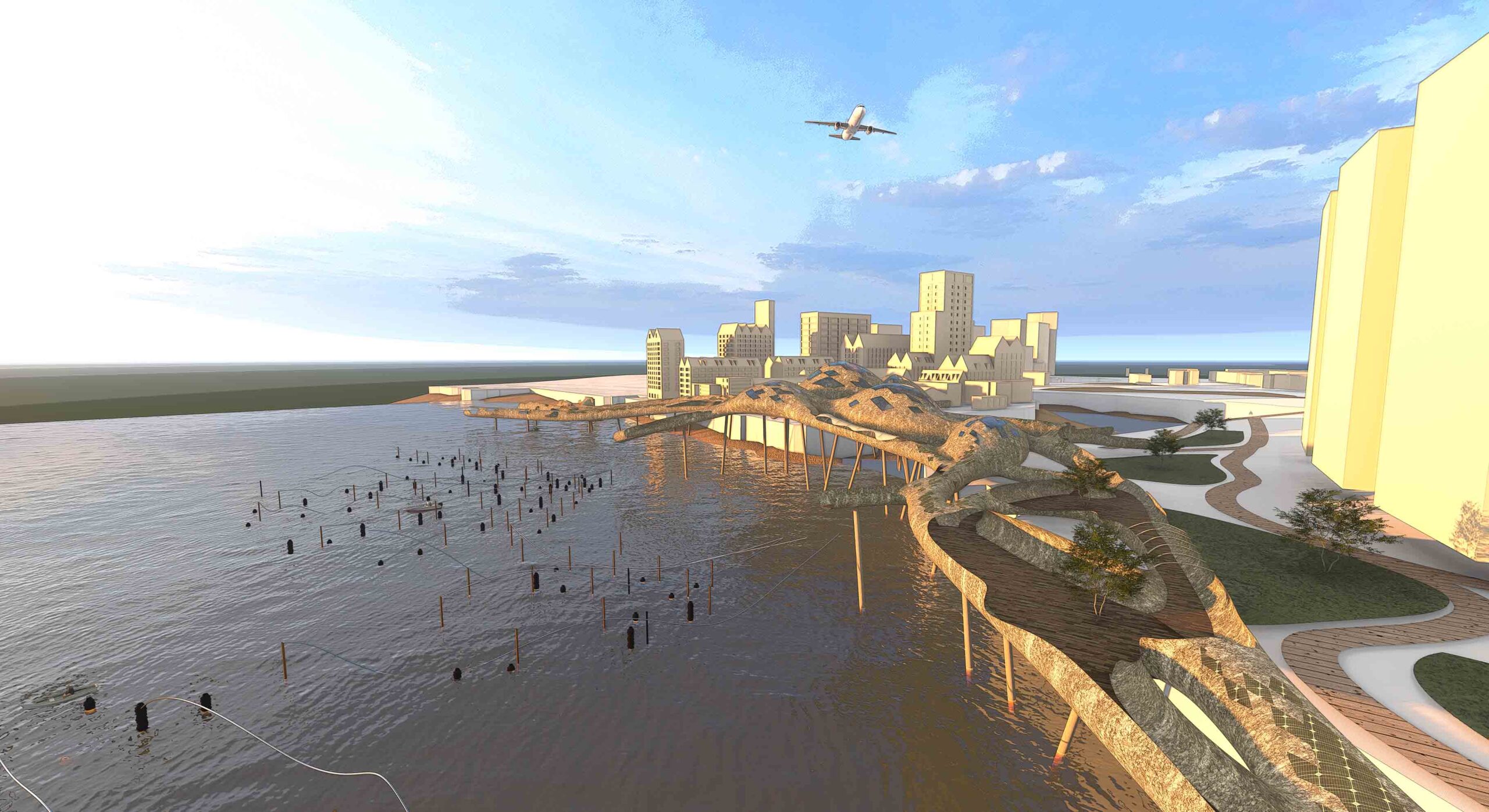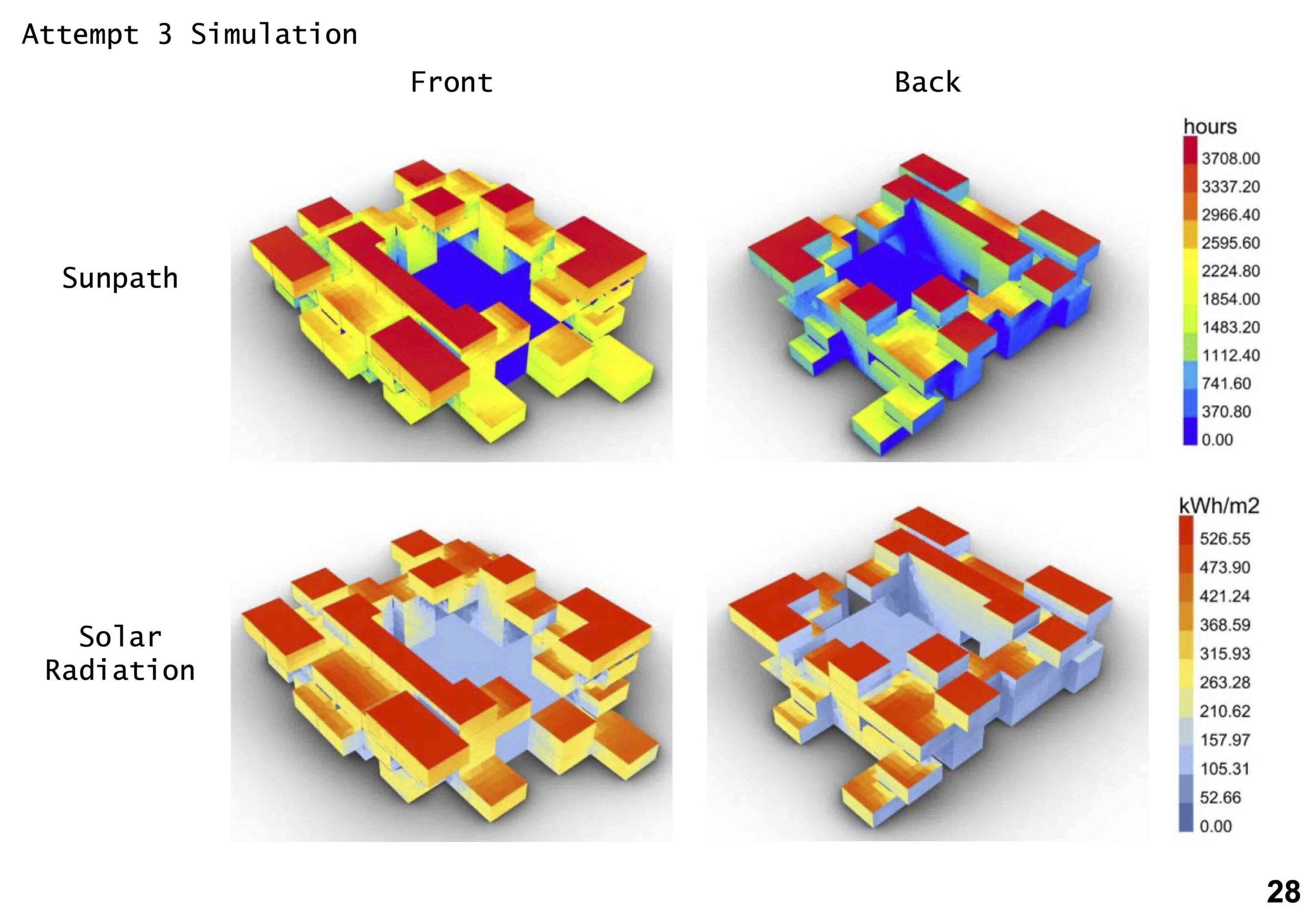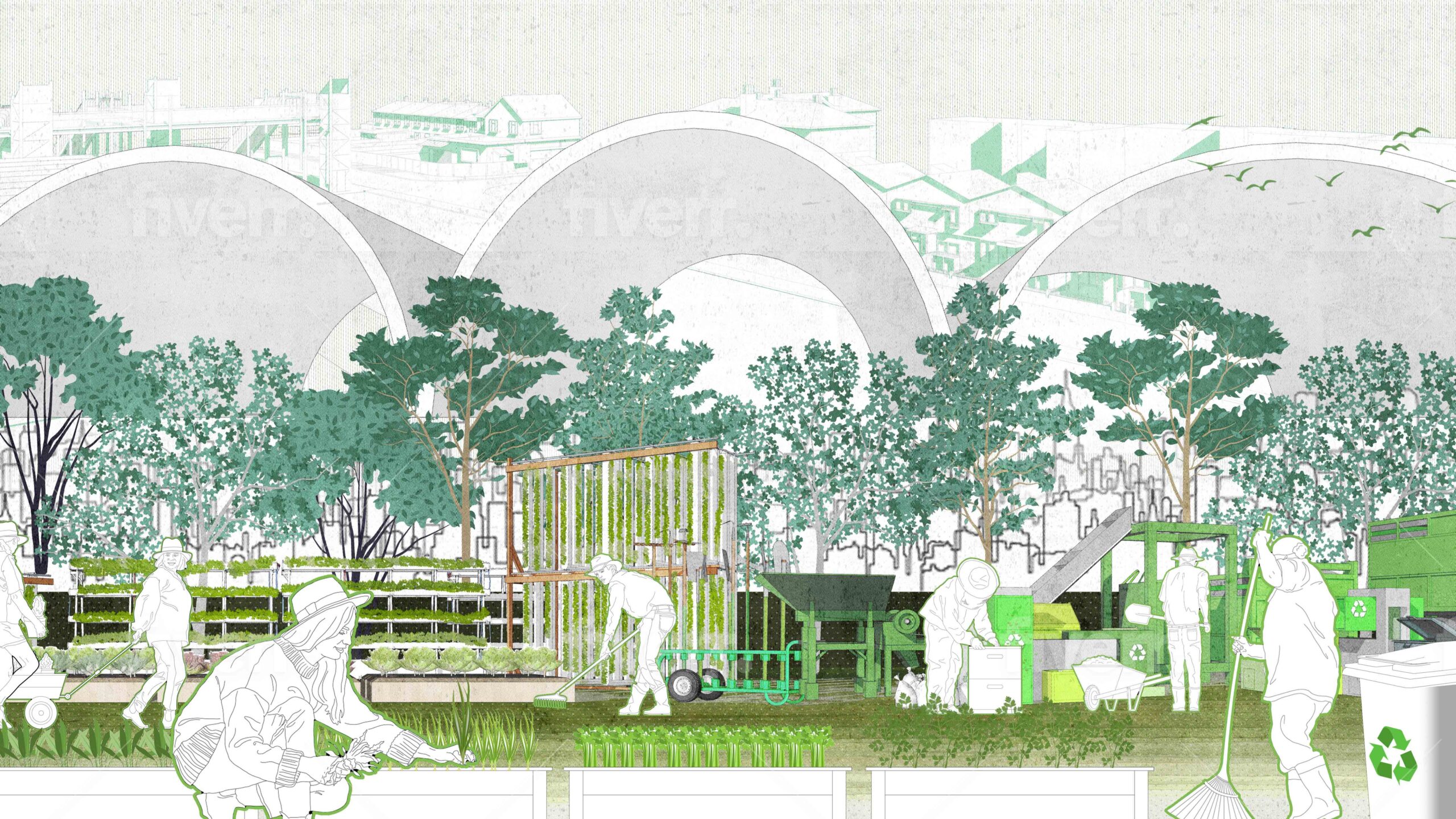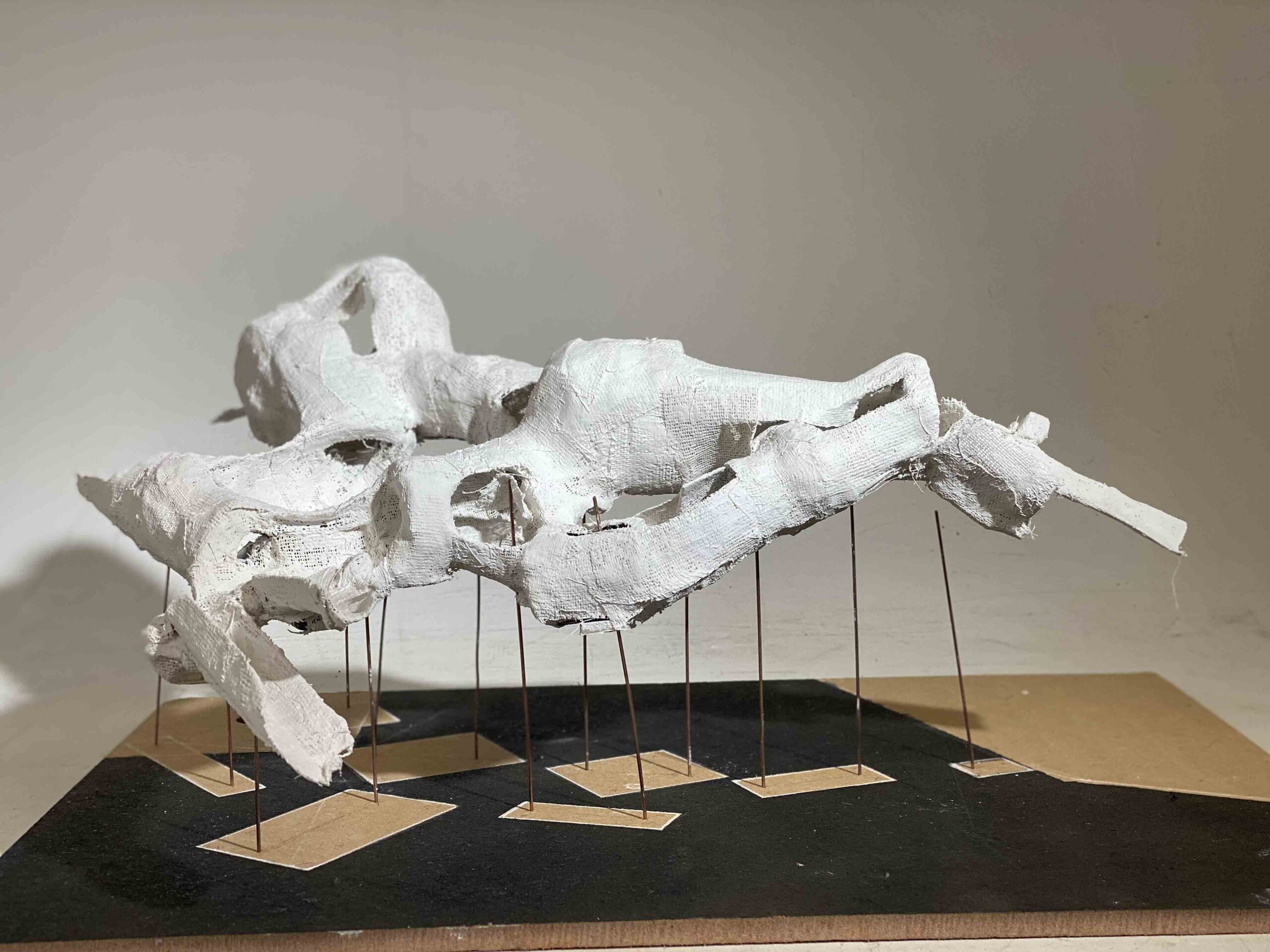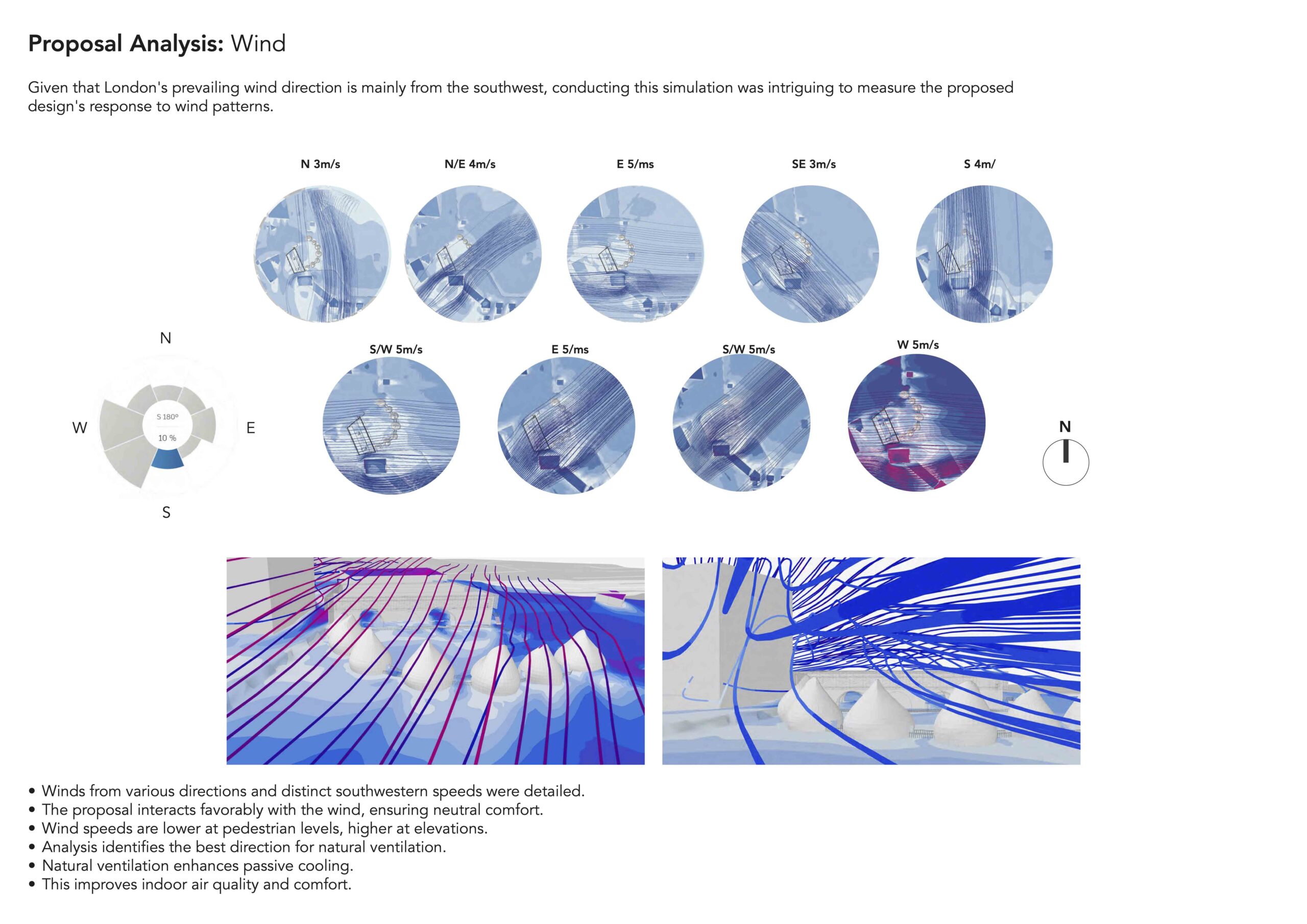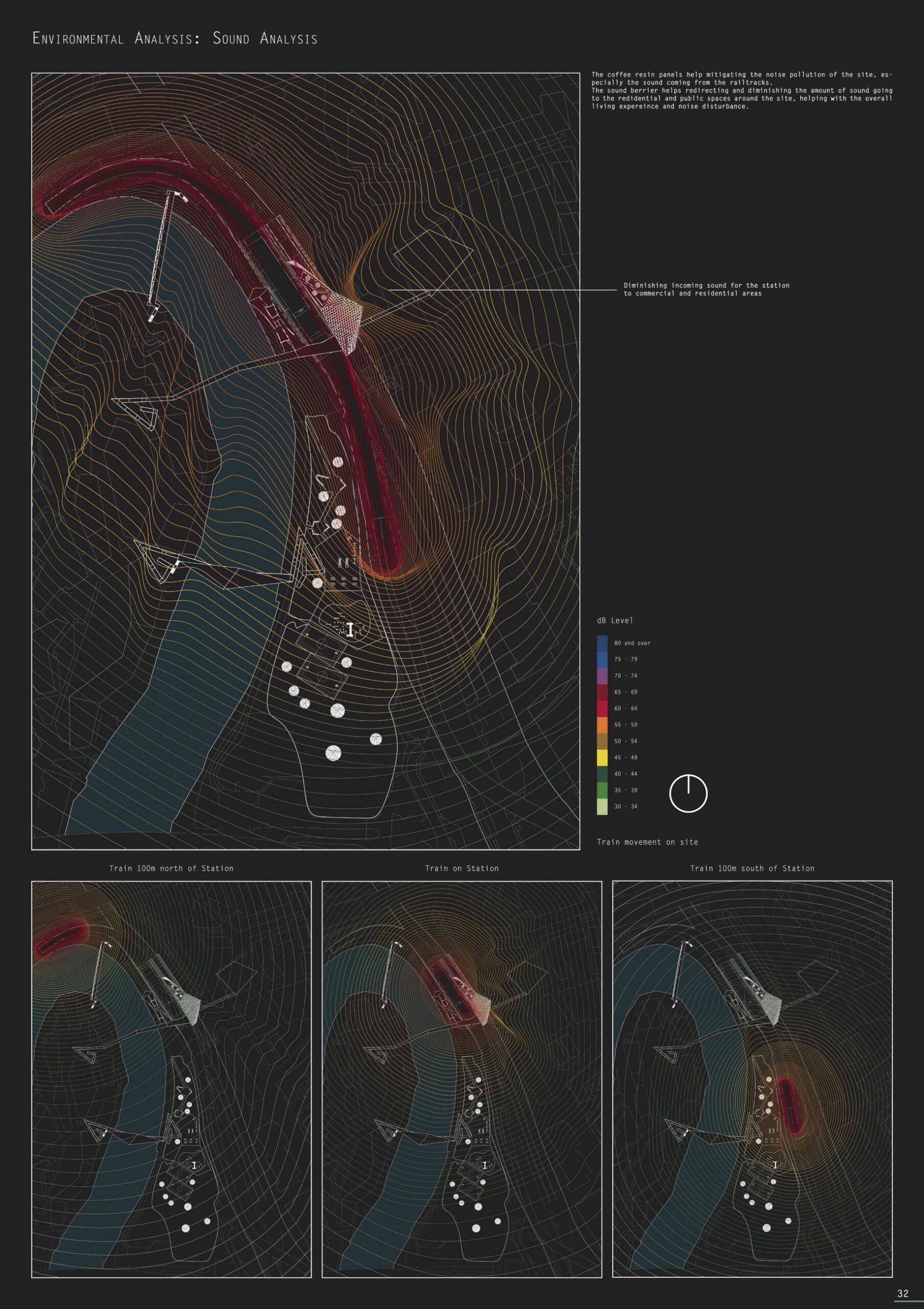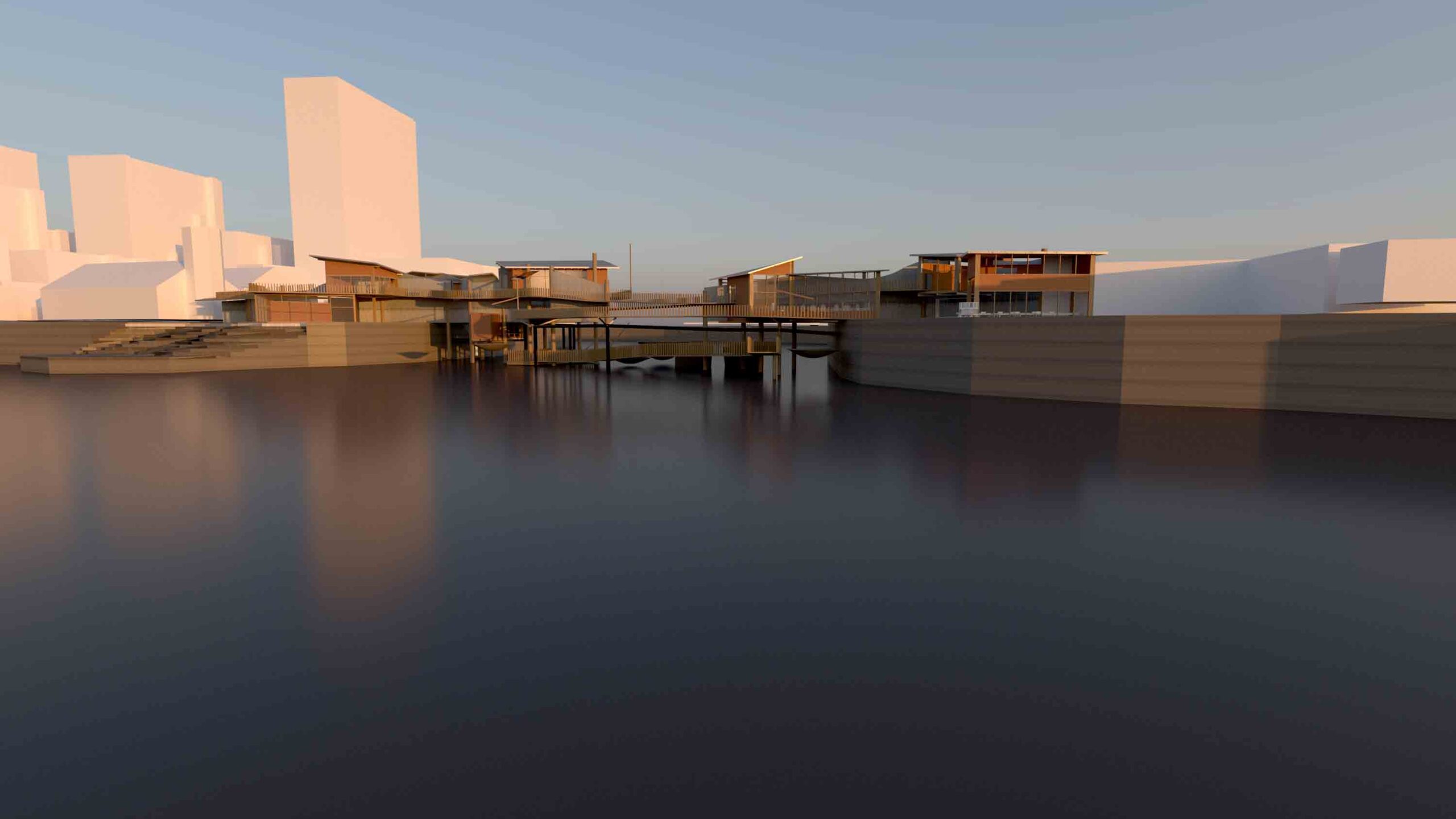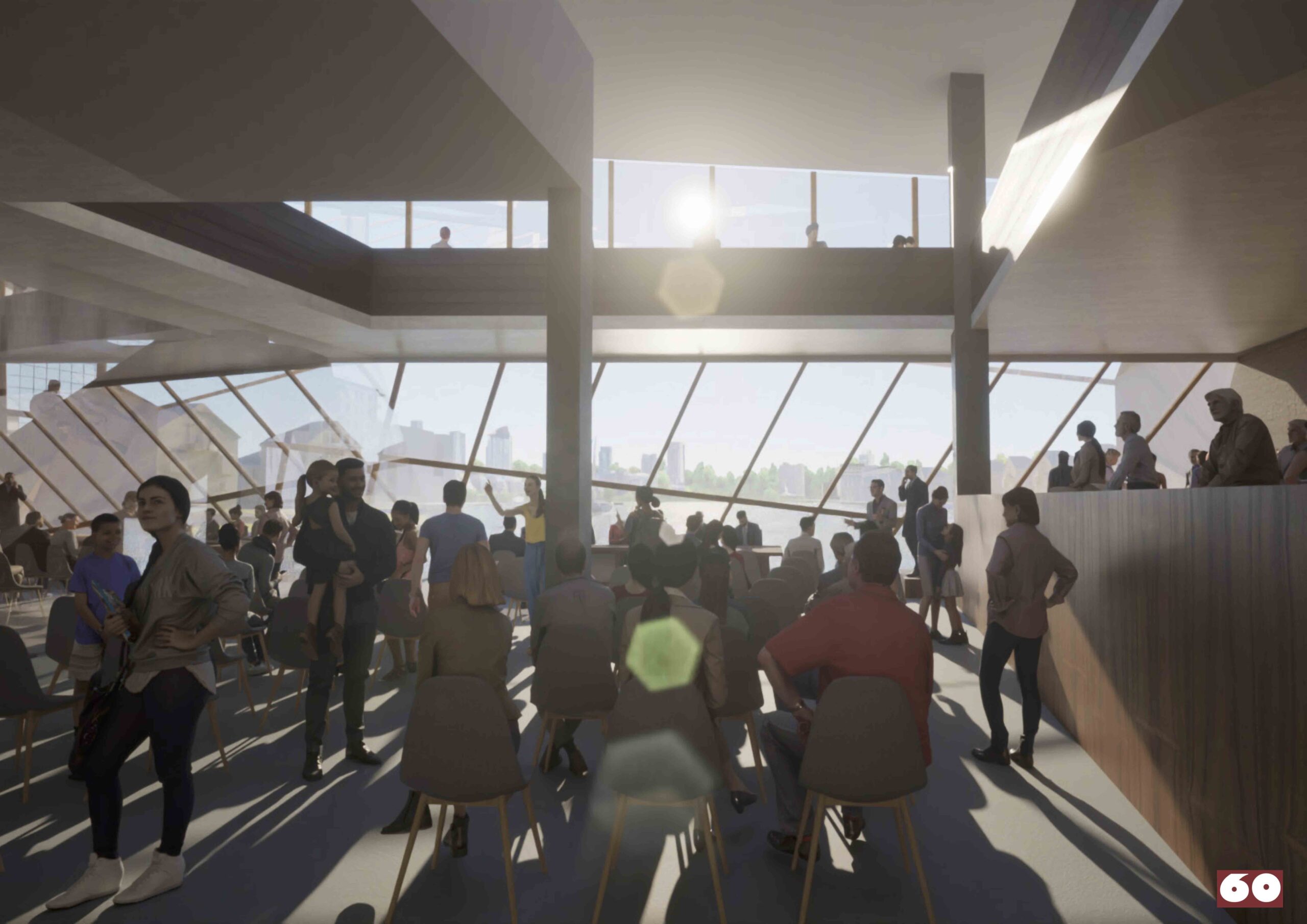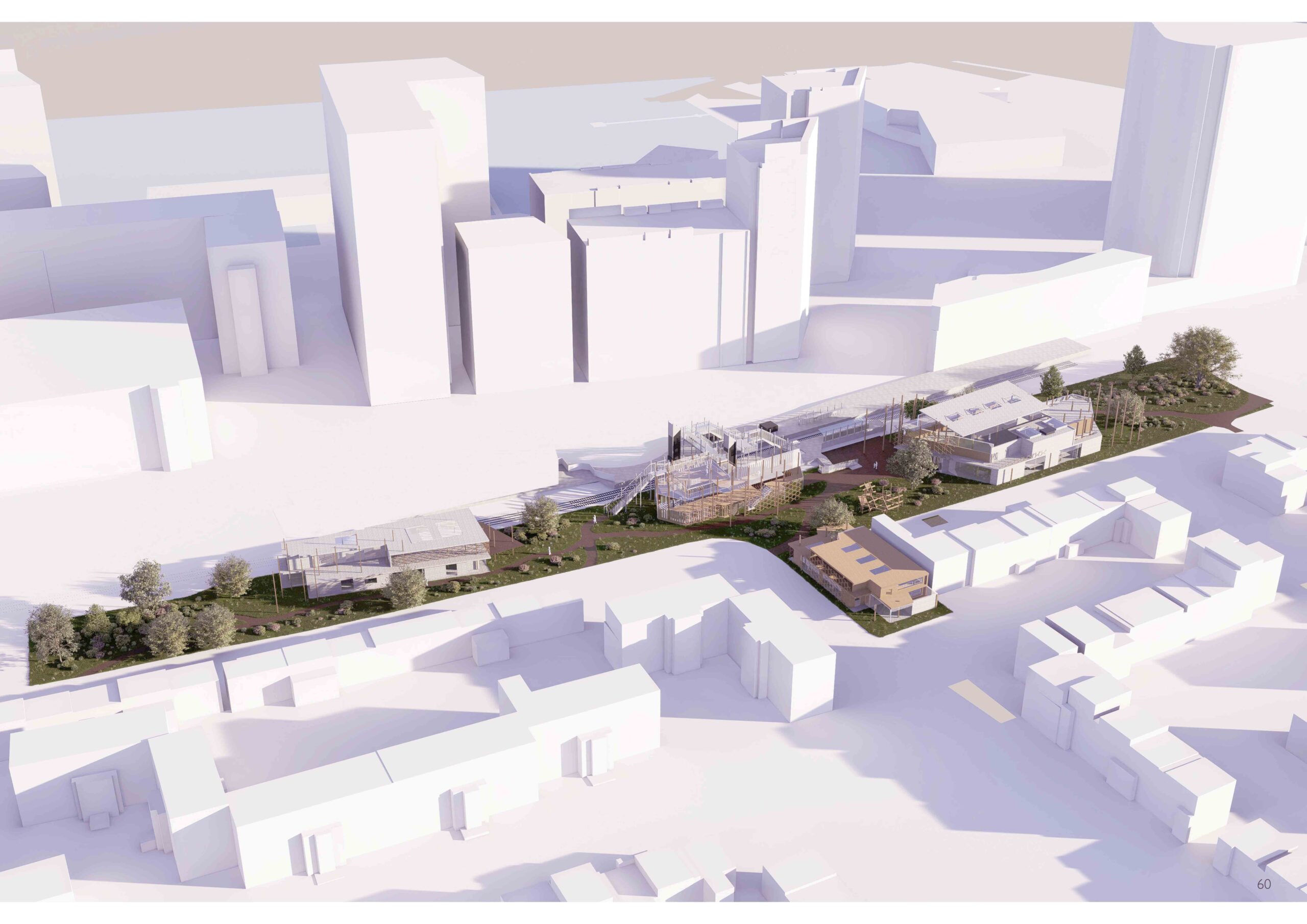BSc Architecture and Environmental Design Year 3 BSc Architecture
John Zhang, Stefania Boccaletti, Roberto Bottazzi
John Zhang is an architect and director of Studio JZ. He has a particular research interest in museums as spaces for climate action.
Roberto Bottazzi’s research analyses the impact of digital technologies on architecture and urbanism. He is the author of Digital Architecture beyond Computers: Fragments of a Cultural History of Computational Design.
Stefania Boccaletti studied, practised and has taught Architecture in Italy, Canada and England. Throughout her carrier as a practitioner and academic, she has developed an interest in the impact of digital tools on the design and fabrication process in the field of architecture.
Re-Imagining Canning Town
Students: Nansi Antypa, Marwah Arshad, Hanaa Belarab-Allen, Wahid Dhrubo, Nicolas Guillot, Lauren Ibbott, Marwa Jait, Christian Li, Ricardo Lugo, Aida Osmani, Triantafyllia Panagopoulou, Yasmin Rana, Anastasia Suzdaltseva Kazakova, Finlay Warwick, Lauren Willihnganz, Lok Yiu, Pavel Zabarsky, Golnar Zolfi
Fifty years ago the report ‘Limits to Growth’ predicted dire consequences for the world if a more ecologically and economically sustainable balance cannot be found. Today, despite the clear and present dangers posed by the Climate Crisis, unabated growth, particularly in the built environment, is still the norm. This business-as-usual model of growth carries severe human, ecological and environmental costs.
Can we endeavour to re-imagine an alternative vision for our neighbourhood that responds to the Climate Crisis, and suggest radical new models for re-making familiar building types in the age of the Anthropocene?
This year, we used Canning Town and the surrounding area as our test bed to address these questions through the radical re-imagining of an established public building typology. Through the design of a large-scale civic structure informed by comparative analysis of typological exemplars, we have been exploring new ways in which established architectural programmes can evolve, mutate and adapt in the age of the Climate Crisis.
We have sought to follow a process of evidence-informed research and design, anchored in the data and the reality of Canning Town. Critical to the success of the students’ proposals is an evidence-informed and iterative methodology for developing research from ‘data’, be it environmental, ecological, typological, morphological, socio-economic, or historical.
The design processes have also been rooted in the idea of thinking through doing be it measuring, modelling, simulating, drawings, animating or filming. We have encouraged students to push the boundaries and consider how the environment can be better communicated through systems of architectural representation.
Over the course of the year, successful proposals have emerged which offer original approaches to sustainable design: from sustainable methods of construction to building performance; from careful consideration of spatial tectonics to creating socio-economically sustainable communities; from human comfort to sustainable ecologies that address non-human inhabitants.
Guest Critics: Agostino Anselmo, Paolo Cascone, Rebecca Cooper (BGY), Suha Faisal (Levitt Bernstein), Rofayada Salem, Hugo Santos (DRMM), Lourenco Viveiros
Archive of BSc Architecture and Environmental Design Year 3’s work from previous years:
BSc Architecture and Environmental Design Y3 2019-2020
BSc Architecture and Environmental Design Y3 2020-2021
BSc Architecture and Environmental Design Y3 2021-2022
BSc Architecture and Environmental Design Y3 2022-2023










